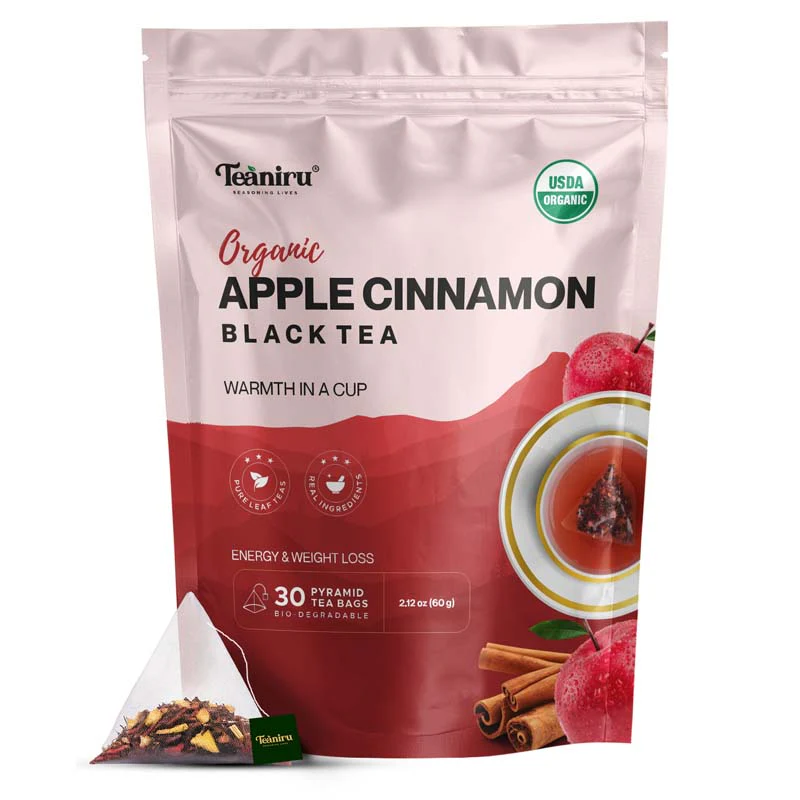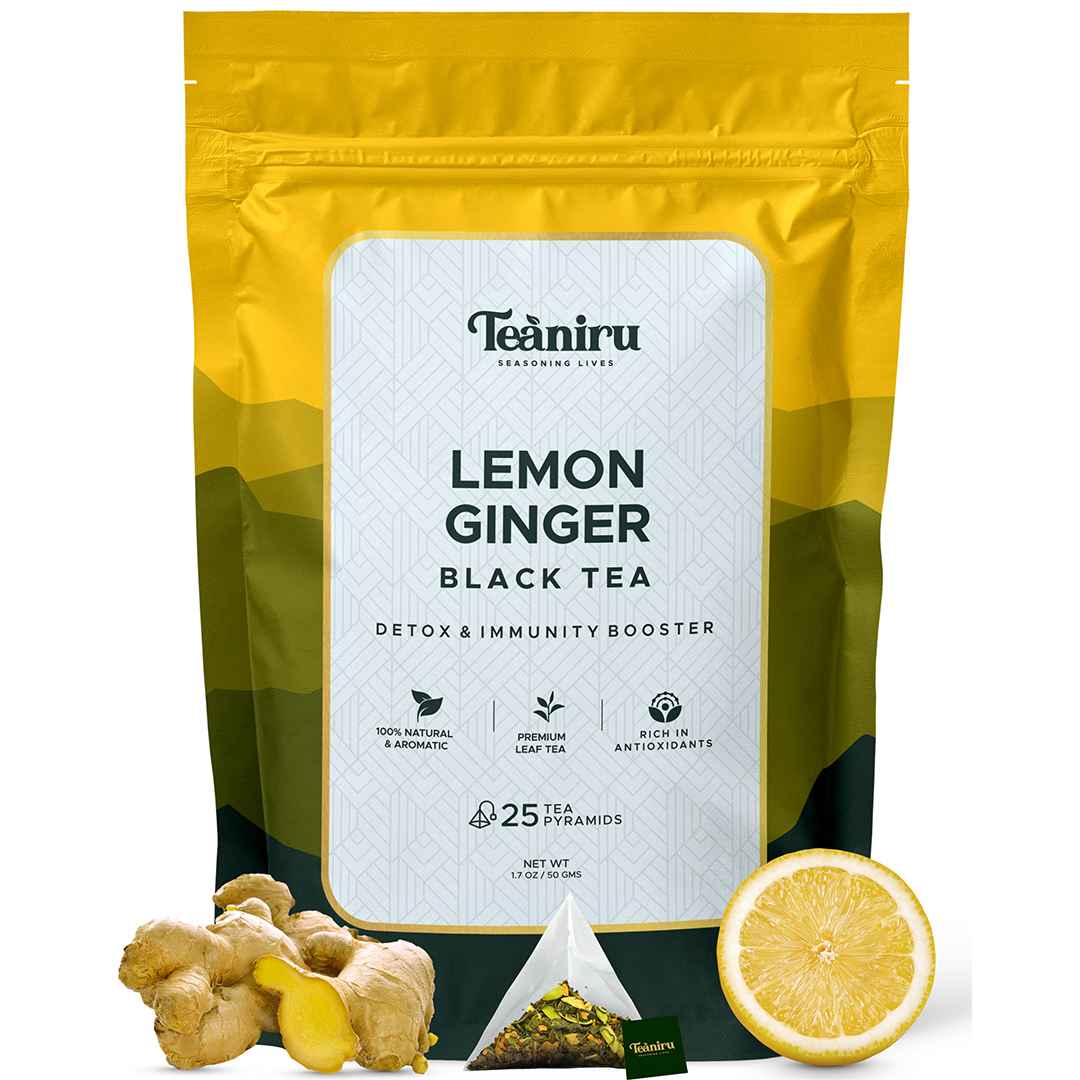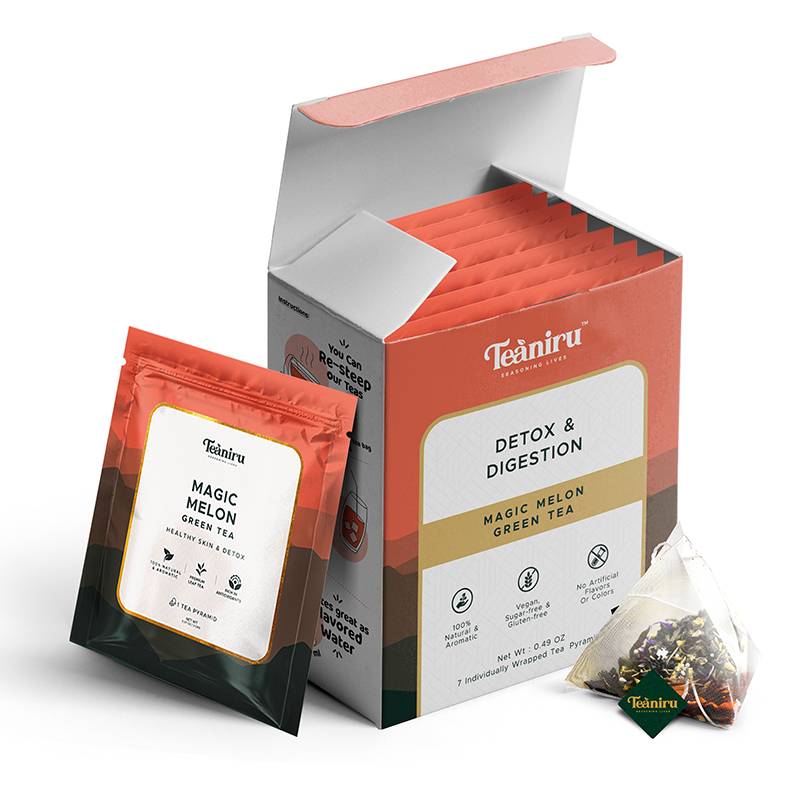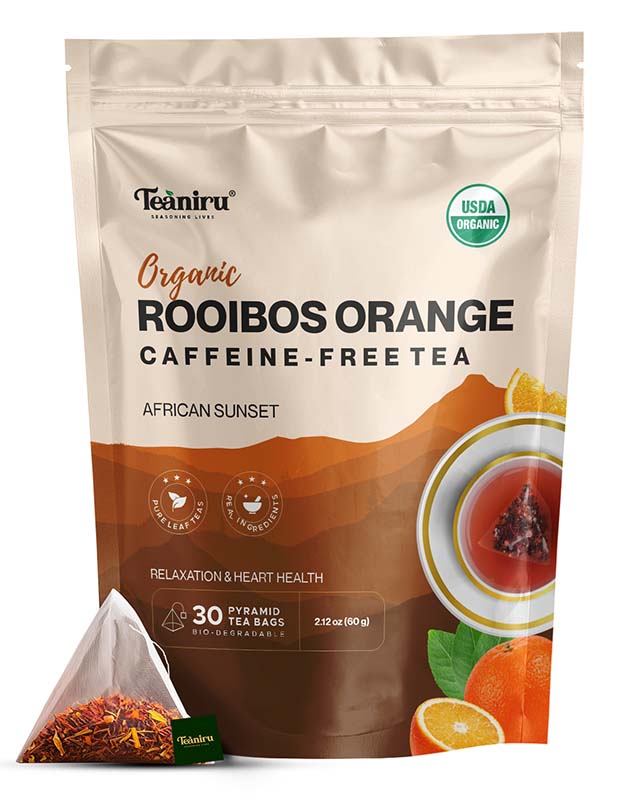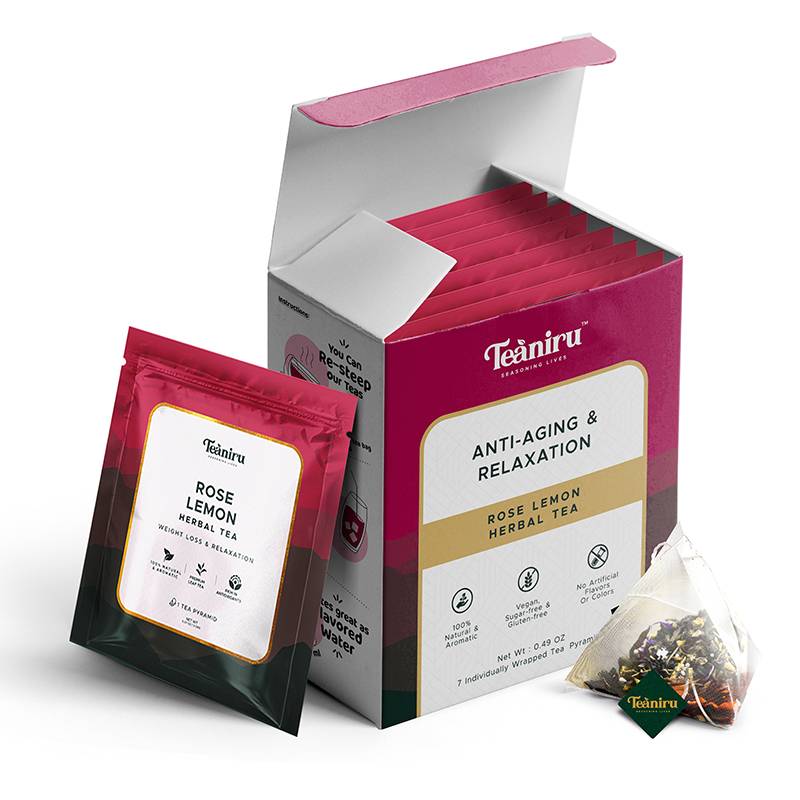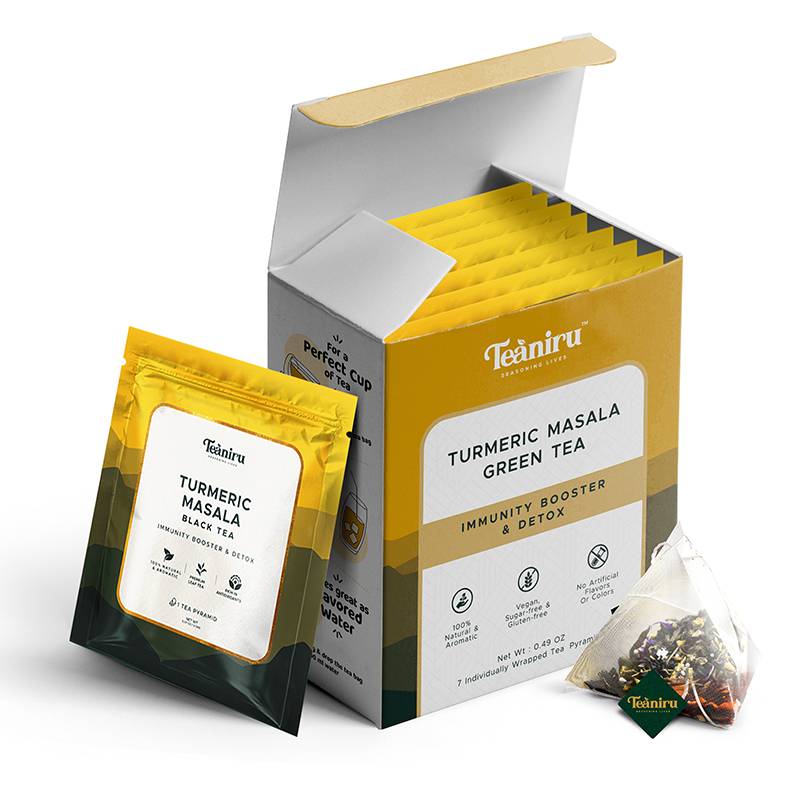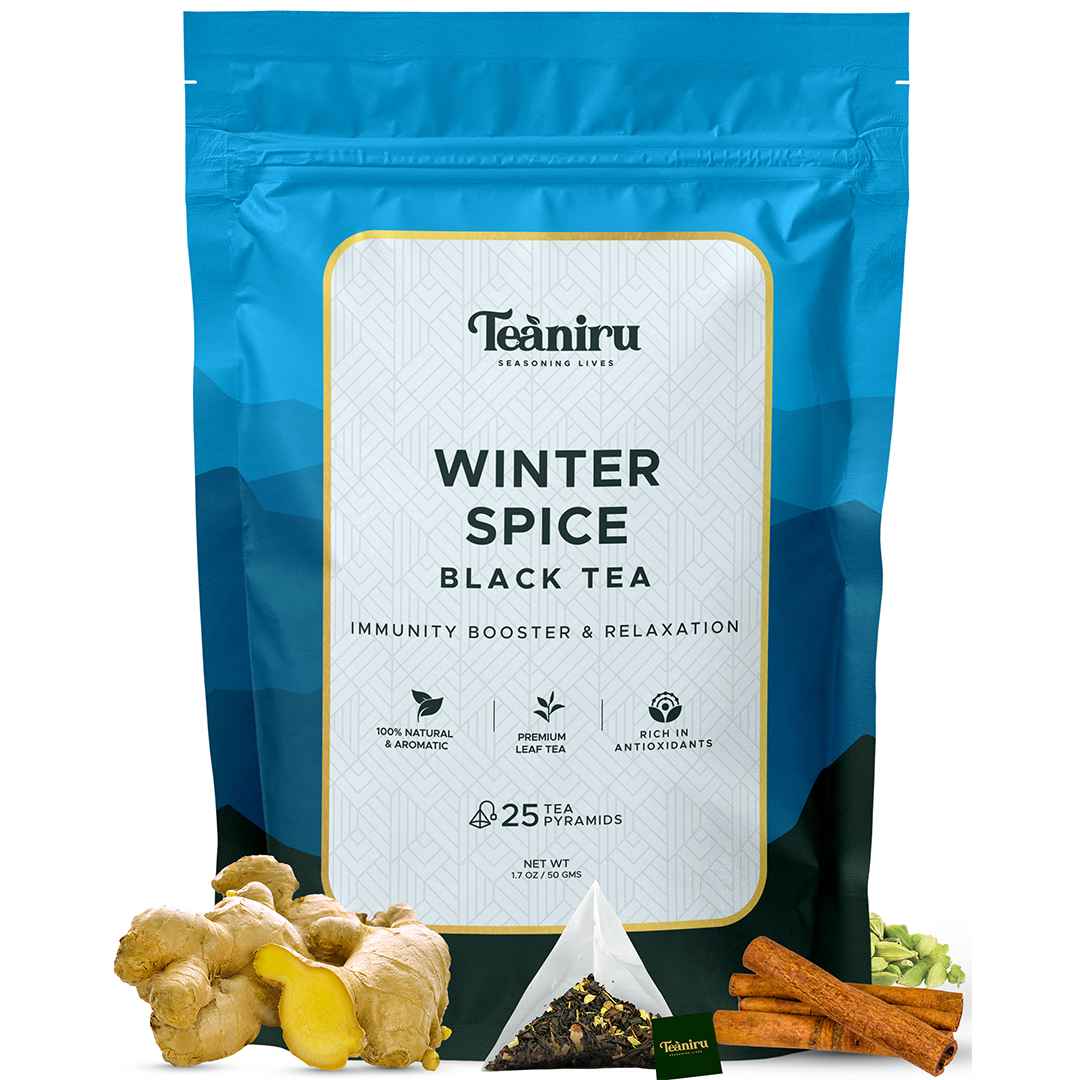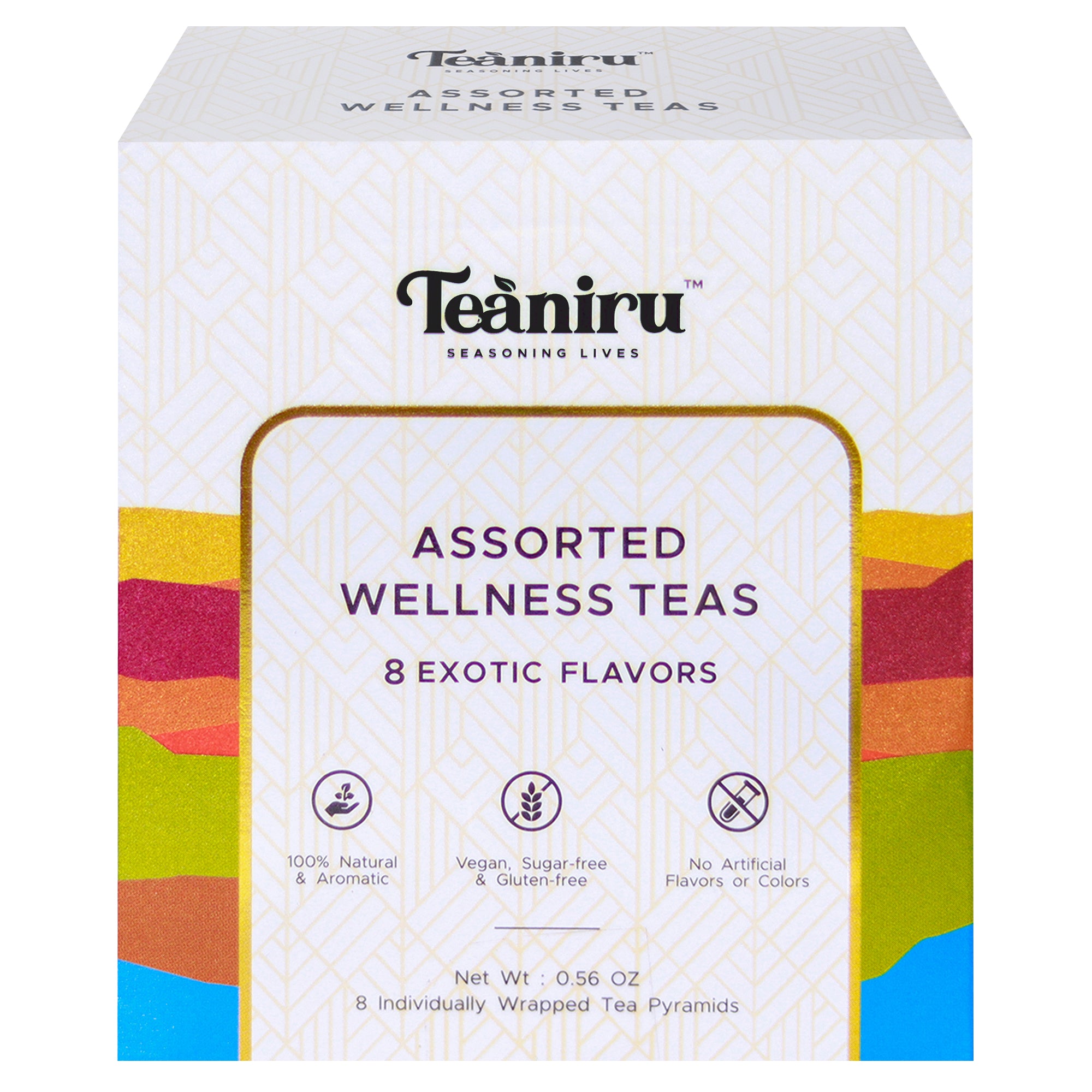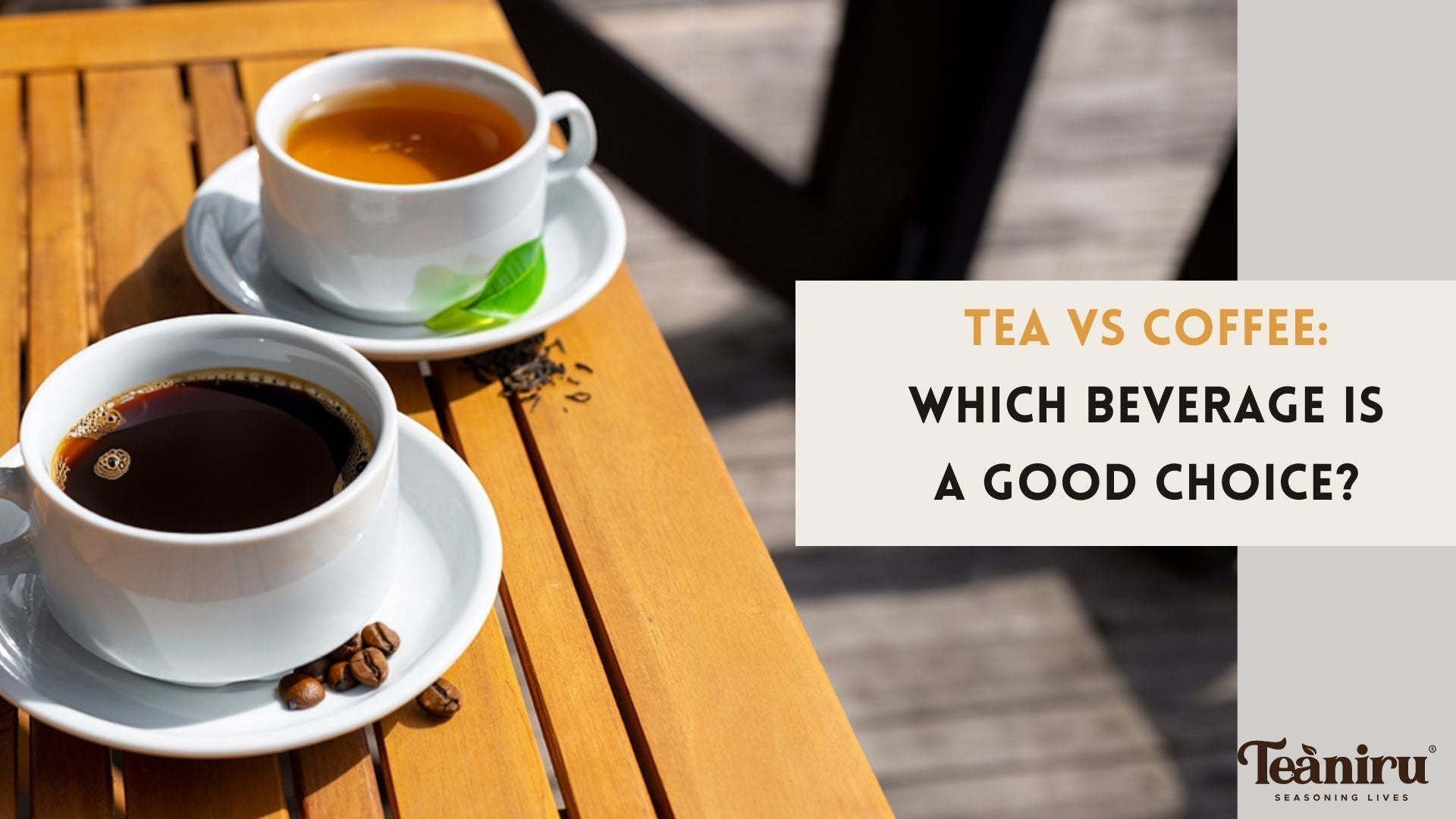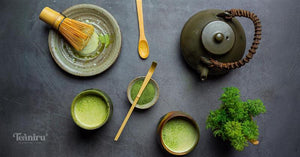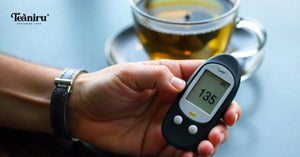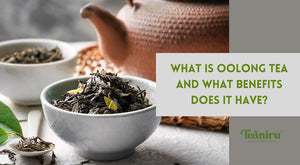You may also like
Both Coffee and Tea are healthy beverages when taken without additives. These drinks are widely consumed by Americans as a part of their daily routine.
Compare both beverages based on the impact they have on your health, caffeine content that match you daily activities and side effects that you can avoid by consuming the right amount of beverage that suit you
Caffeine in Tea Vs. Coffee
Unbrewed Tea leaves have higher caffeine than raw coffee beans, it is the brewing or preparation process that changes the caffeine levels in both coffee and tea
All types of tea, other than tea blends like fruit or herbal tea infusions contain caffeine in them.
Let us consider that US consumers drink 2 to 3 cups of Coffee or Tea in a day

Coffee: Caffeine content in 3 cups of brewed Coffee (711 ml) is 288 mg and caffeine content in 3 cups of Espresso is 192 mg
Tea: Caffeine content in 3 cups of brewed tea is between 84 mg to 141 mg
If you want to stay extremely active and want an instant hit of energy can prefer a small quantity of Coffee which is high in caffeine content than tea
If you want a slow boost of balanced energy without any sleeping disorders tea is the best choice
Tea scores a point for balanced caffeine intake for various types of consumers i.e, adults, seniors and people with health conditions

Tea Vs. Coffee: Health Benefits Comparison
The benefits of various types of Tea and coffee have been compared head-to-head to help you make a clear choice of the drink you need for your day-to-day activities
Antioxidant Content
Both Tea and Coffee are rich in antioxidant content, mostly polyphenols.
White Tea, Hibiscus Tea and Green Tea, which are less processed, have a high level of antioxidants such as catechins, flavonoids, and tannins
Unroasted or blonde roasted Robusta Coffee Beans contains equal or two times the antioxidant content present in medium or strongly roasted Arabica beans
Majority of the American population prefer Coffee with Cream and Sugar which can dilute antioxidant absorption in your body. Cold brew coffee is also preferred a lot by consumers
Steeping Tea for a long time can also reduce antioxidant activity hence shorter steeping time is recommended for White and Black Tea
It is not a common practice for US consumers to drink tea mixed with milk or added sweetening agents which is a very healthy practice to get the most antioxidant contents into your system
Coffee cannot be consumed a lot as it may cause an increase in blood pressure levels, insomnia and also an increase in heart rate giving you a tense feeling
You can have more cups of Tea than two cups of coffee to get the most antioxidants out of briefly infused Tea
Tea is the winner when it comes to Antioxidant absorption for health

Dietary Fiber
A study about the presence of dietary fiber in brewed coffee (filter, soluble and espresso) states that there is 1.12 to 1.77 grams of soluble dietary fiber in 237 ml - 240 ml of coffee (1 standard cup)
The dietary fibre content in coffee is higher than less to no fiber content in brewed tea
Coffee is the winner for having fiber content that can help in digestion

Prevention of Type 2 Diabetes
Coffee contains chlorogenic acid (CGA) which improves blood sugar control in the body when consumed regularly
Tea does not contain chlorogenic acid but it contains other polyphenols that regulates blood sugar levels in your body and also prevent Type 2 diabetes
This is a point for both Tea and Coffee

Energy, Stress levels & Focus
Coffee has high caffeine content and gives you instant energy and increases alertness and reduces tiredness
The instant boost of energy gives you focus to do physical and mental tasks but can be addictive
Tea has lower caffeine but it has L-theanine which reduces your stress levels and has a relaxing and calming effect that boost your energy smoothly and helps you stay sharp
Tea is the winner as it provides a combo or caffeine and L-theanine to stimulate your brain activity and calm your body.

Prevention of Heart diseases
Drinking too much coffee can affect your overall health but there are no conclusive studies to show the direct relationship between coffee and heart health
According to a research in 2021 drinking moderate amount of coffee without additives (1 or 2 cups) regularly helps control blood pressure and cholesterol levels and reduces the risk of having a heart failure or irregular heartbeats
Drinking 3 to 5 cups of tea (green, black, or oolong) regularly can have an anti-inflammatory (self healing) effect on your body especially if there is added cinnamon in tea.
Tea reduces blood pressure, prevents formation of blood clots and according to this research which helps improve blood flow preventing any chances of heart disease, stroke or failure
It is a draw for both Coffee and Tea here

Weight loss
Coffee contains caffeine that increases metabolism (conversion of food to energy) and promotes high physical or mental activity that helps you in weight loss
Tea contains flavonoids that also improves metabolism in your body and helps in weight loss
US consumers tend to add sugar and dairy products more with coffee than tea and this can increase calorie intake and affect your weight loss progress. Coffee is also dependant on too much caffeine for weight loss
‘
Tea is the clear winner here

Cancer Risks
Coffee can help reduce the risks of cancer but can cause side effects during actual cancer treatment. Cancer patients must consult their doctors regarding consumption of coffee during treatment
Tea prevents the spread of cancer cells (anti-proliferative effect) and also can be consumed by cancer patients only when their doctors allow them to take it as they may reduce the effects of chemotherapy treatment
Both coffee and tea act as preventive measures to reduce the risks of various types of cancers but cancer patients must consult their healthcare professional before drinking any beverage
Draw again for both coffee and tea

Brain Activity and Diseases
Caffeine content in coffee can always help keep the brain active and helps prevent diseases like Alzheimers or Parkinsons
Coffee is more helpful than Tea in avoiding brain degenerative diseases like dementia due to the higher caffeine content
Coffee is a winner here

Side Effects: Tea Vs. Coffee
Pregnancy: For Pregnant women or breastfeeding mothers the maximum amount of caffeine content recommended is less than 200 milligrams per day so Tea is a much suitable drink for them.
Always consult your doctor or a healthcare expert for their opinion regarding consumption of beverages to avoid pregnancy complications
Disease Interactions: Drinking a lot of coffee everyday can cause bone fractures more in women than men so people with osteoporosis or other bone diseases must follow the advice of their doctors when drinking beverages
High Caffeine intake can cause insomnia (sleep disorder) and tense feelings so the amount of coffee or tea that you drink while you have any disease or disorder must be as per the advice of your healthcare professional
Dietary problems: Adding sugar, cream, milk or other artificial sweeteners with coffee or tea during a regular drink can increase your calorie intake.
Adding sugar or cream in small quantities with your favorite drink occasionally is a good dietary habit
It is a draw for both Tea and Coffee here

The Winner is Tea
Tea is the winner when it comes to overall health improvement and balanced caffeine and calorie intake.
If you are a person who loves to improve overall health than an instant reward system your choice is tea
Coffee with its high caffeine has its advantages and disadvantages, the boost of instant rewarding feeling can be the choice of those who do intense physical or mental work
